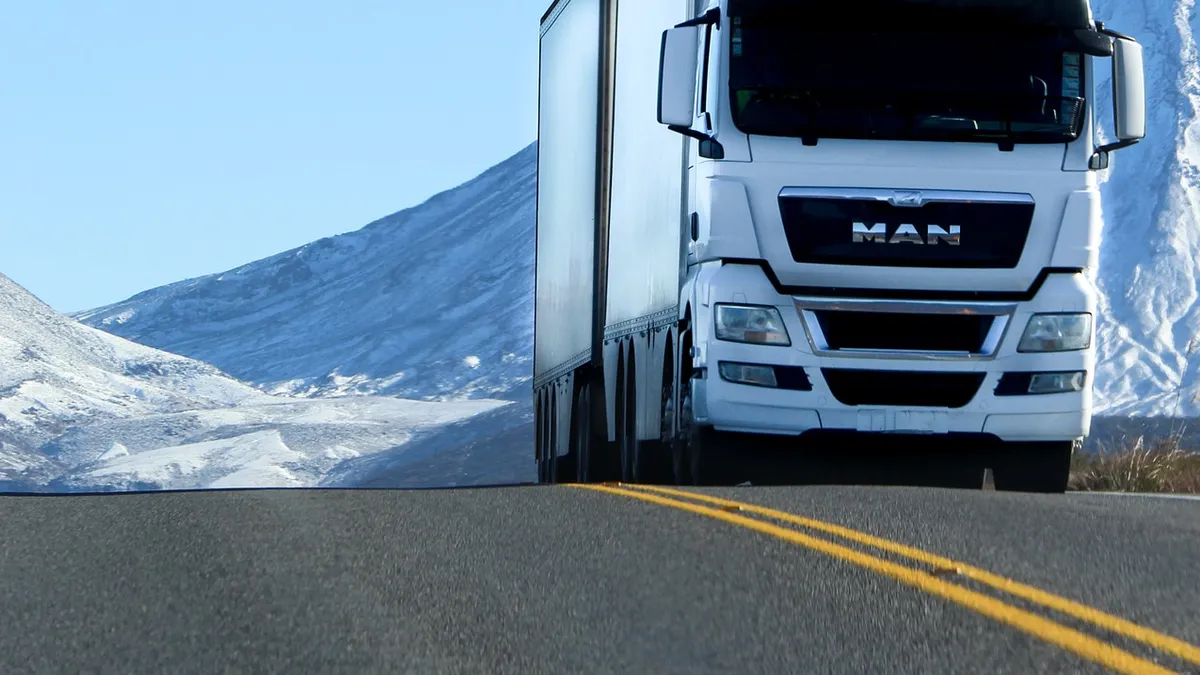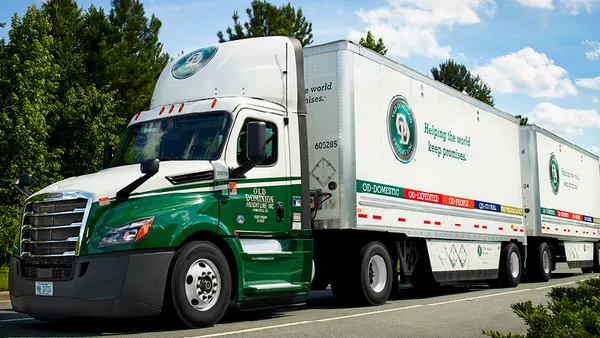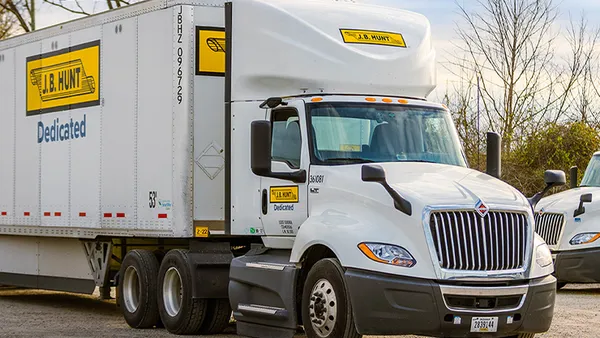Dive Brief:
- The most common sustainability effort among shippers is optimization efforts like route or load planning, with 76% of respondents saying their companies were already using these techniques, according to a survey conducted for the 2020 Third-Party Logistics Study.
- "Shippers are becoming more and more flexible with their networks and are increasingly willing to discuss ways to optimize their inbound and outbound networks to minimize the number of trucks on the road and maximize utilization," the report reads.
- Around 42% of shippers were tracking and reporting emissions and another 38% said they were participating in voluntary efforts like the Environmental Protection Agency’s SmartWay program. Alternative fuels were less common among shippers with just 28% citing their use, but it was more widely used among 3PLs where 36% of respondents said they were using these fuels. The reasons for adopting green initiatives was fairly evenly split between public perception, regulation and cost savings.
Dive Insight:
Evaluating a supply chain network to find efficiencies in loads and routes can result in a 5% and 30% reduction in emissions, respectively, according to a study in the International Journal of Applied Mathematics, Electronics & Computers cited by the report
While the report notes that shippers are increasing their flexibility to allow for better route planning, it does suggest that shippers' operations can occasionally impede these efforts. Requiring deliveries on certain days or within a particular time window and limit the ability of a 3PL or other carrier to implement route optimization. Shifting away from current business models can be difficult, but shippers can work with 3PLs to outline a roadmap to better optimization, the report suggests.
As technology enters transportation fleets, logistics providers are getting better at this kind of optimization thanks to data from electronic logging devices and telematics, according to the report.
While the number of shippers currently using alternative fuels is low, more than 40% of shippers said they plan to launch alternative fuel programs in the next five years. One downside of these fuels is the cost — alternative fuels tend to cost more than diesel. Some companies are willing to absorb this if the emissions savings is important to them, the report said.
There is a cheaper option, though: electricity. Multiple carriers have already begun adopting electric vehicles including NFI, Penske, UPS, FedEx, DHL and the U.S. Postal Service. The use of electric trucks, though, can limit the weight of cargo and there needs to be more standardization when it comes to charging infrastructure for the technology to really take off, the report said.
Many of the early uses of EVs within transportation fleets are currently taking place in California where state rules required or provided incentives for companies to transition to more fuel-efficient modes. But the Trump administration has said in recent days it wants to revoke California's ability to set these strict standards. California's Democratic Governor Gavin Newsom said he would take the administration's decision to court.














